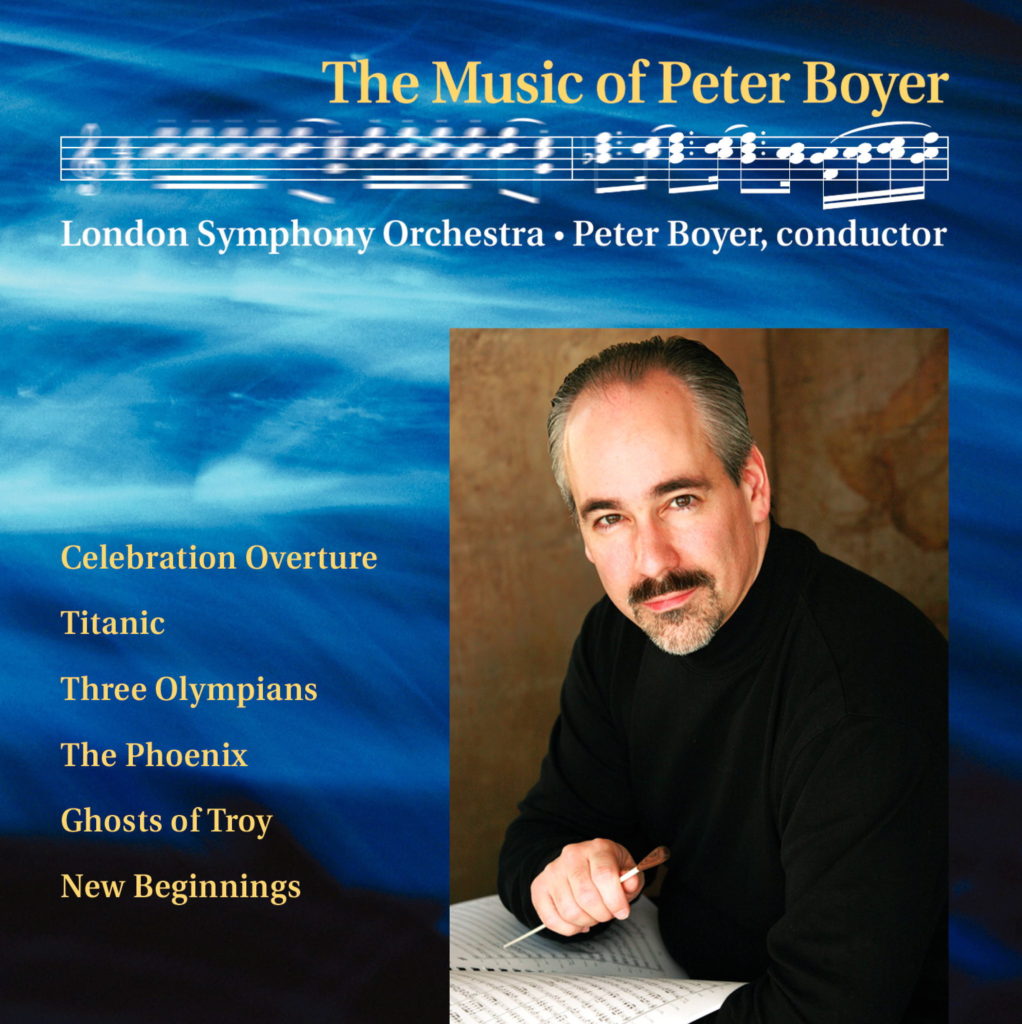— The Register-Guard (Oregon)
Inspired by Homer’s The Iliad, Boyer’s Ghosts of Troy is a tone poem which evokes key episodes from that Trojan War epic. The work was commissioned by the Oregon Mozart Players, and recorded as part of Boyer’s debut album with the London Symphony Orchestra in 2001.
Instrumentation
2(II=picc.).2.2(II=bcl).2—2.2.0.0.—perc(2,incl.timp)—harp—pft—strings
Duration
14:30
Composition Date and Commission
Composed 2000
Commissioned by the Oregon Mozart Players with support from the Hult Endowment Fund
Critical Acclaim
“In some ways, Ghosts of Troy is the most impressive specimen [of the works on the LSO recording], because it shows the greatest stylistic and harmonic range.”
— The Hartford Courant
“The six short panels of Ghosts of Troy further underscore [Boyer’s] command of orchestral effects and cinematic vocabulary.”
— Tucson Citizen


